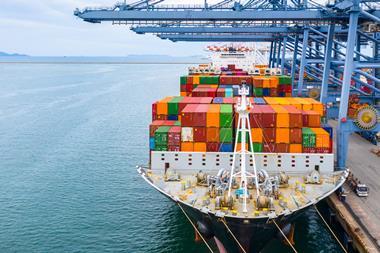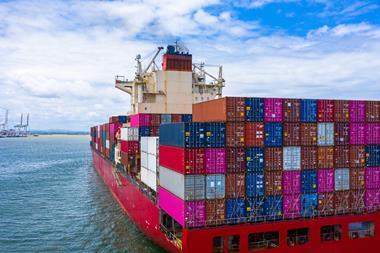New regulations emphasise financial sustainability as firms grapple with trade disruption and inflation
BSI has published its annual Supply Chain Risk Insights Report, which indicates that organisations that manage supply chain disruption effectively in 2023 will be best equipped to weather the financial challenges ahead.
It finds that unprecedented price inflation, exacerbated by the Russia-Ukraine war, but also an enduring legacy of COVID-19-related shutdowns and the resulting prolonged shortage of key manufacturing components, has awakened governments to the importance of global supply chains to national interests.
Susan Taylor Martin, chief executive of the British Standards Institution, said: “2022 saw volatility in global supply chains that many would never have expected in their lifetime.
“Successive crises, including a global pandemic followed by a war in Europe, have resulted in continued uncertainty on many fronts and have demonstrated to governments the benefit of ensuring a robust global supply chain.
“Given the turbulence of the last twelve months, 2023 will be an important watershed for many organisations – with those that successfully manage their supply chain risks being more likely to thrive.”
More supply chain scrutiny
The combination of new legislation such as the CHIPS Act and the Bipartisan Infrastructure Law in the US, and increased GPDR regulations across the EU, is placing greater accountability on suppliers and purchasers.
Government intervention spans efforts to bolster domestic supply chains, reduce carbon emissions, and enhance governance.
Monitoring rapidly changing regulatory agendas is highlighted as one business imperative that decision-makers need to be aware of if organisations are to succeed in the face of the ongoing global disruptions.
The report identifies five additional imperatives that organisations will need to address to enable future growth and provide financial sustainability:
- Leadership: Supply chain continuity requires investment from the top down and what organisations really need right now is strong buy-in from top level leadership
- Digital: Organisations need to urgently address their digital risk, with 73% significantly concerned about the risks posed by the digitisation of supply chains, but not one organisation having resolved the risk
- Self-knowledge: Organisations need to invest in tools and technology which help them form a comprehensive understanding of their supply chain environment, such as data analysis, IoT, cloud computing, information security and predictive analysis
- A tailored approach: An awareness of the different, unique challenges facing each sector’s supply chain is key
- New technologies: Data, the metaverse, and cybersecurity are segments of technology that will differentiate organisations’ approaches to building strong supply chains
Jim Yarbrough, Global Intelligence Program manager at BSI, said: “The threats facing global supply chains vary from region to region and are distributed unequally, but in the face of rampant global price inflation, all countries ended 2022 in conditions more precarious than they were at the outset.
”Without intervention, businesses will see dramatic impacts on their bottom line, meaning that discussing supply chain issues at the C-suite level can help to ensure investments are funnelled to suppliers, building resilience to threats and supporting financial sustainability.”




















No comments yet